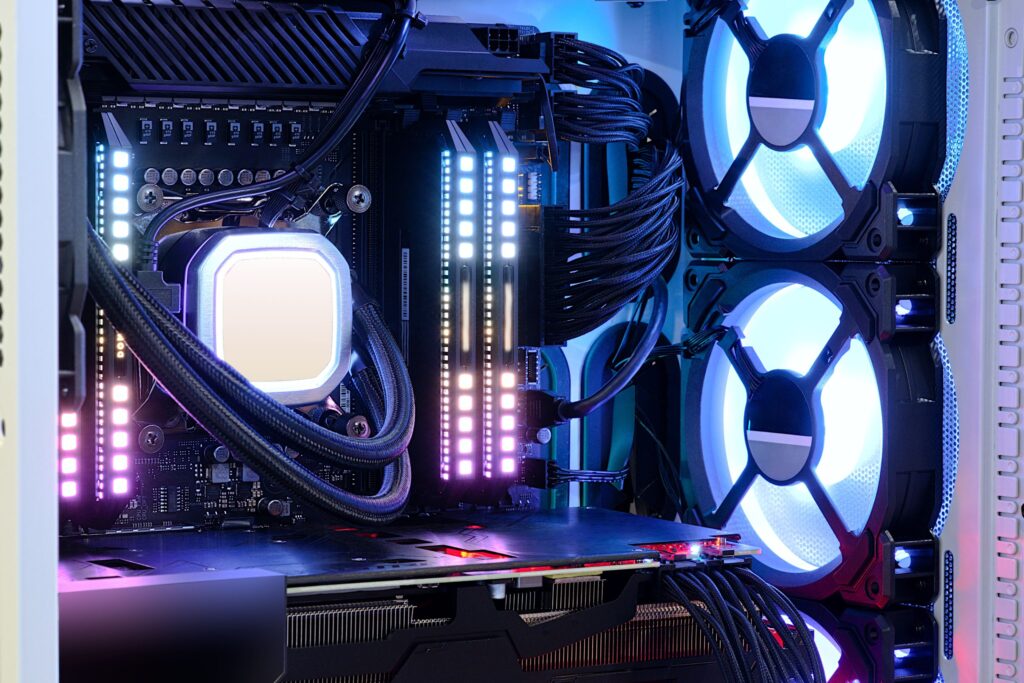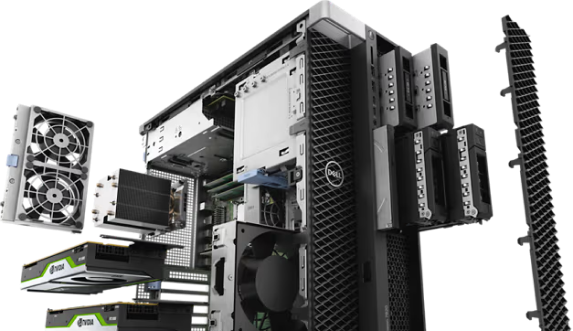
Does your PC freeze mid-way through your gaming?
Not ideal.
Gaming memory, also known as Random Access Memory (or RAM for short), is vital for gamers who want to take their gaming experience to the next level.
Although your operating system, solid-state drive (SSD), processor and graphics card will impact on gameplay, adding more RAM can boost your system’s responsiveness and improve frame rates – ensuring your games run as fast and smoothly as possible.
Our gaming experts, here at Inside Tech, are often asked “What RAM do I need for gaming?” and “Is 8GB enough or should I consider a PC with more memory?”.
If you’re wondering the same, read on to find out more – including how much RAM gaming PCs really need.
How does RAM work?
RAM temporarily holds information between your computer’s processor and SSD or HDD (hard disk drive).
Whilst RAM provides short-term, fast-access storage, SSDs and HDDs offer long-term memory and store information more permanently.
When you launch a computer game, the data your PC needs to access during the game will be loaded into RAM.
To save your computer having to pull information from the SSD or HDD – which can be slow and inefficient – choosing a gaming PC with sufficient RAM memory will reduce the constant toing and froing, allowing your games and other applications to respond much quicker.
How much RAM do I need for gaming?
The exact amount of memory you will need for gaming often depends on the type of games you want to play and whether you use any other applications at the same time. This is because RAM requirements vary for different titles and formats.
As a bare minimum, desktop PCs should have 8GB. Anything less than this, and the performance of your game can suffer as your computer works tirelessly to pull the data whilst your game is running.
But is an 8GB RAM PC good for gaming?
Although an 8GB gaming PC will meet the minimum requirements, it won’t necessarily provide the smoothest gaming experience. Your PC may be restricted to low-medium settings and graphic-intensive AAA titles could still suffer lagging frame times – making a 16GB RAM PC ideal.
It’s also worth bearing in mind that future titles may increase their RAM requirements. If gaming is your hobby, passion or lifestyle, choosing a computer with more than 8GB will enable you to play more modern games in the future – without having to constantly add more memory.
Should I consider a 16GB or 32GB RAM PC?
For most gamers these days, 16GB is considered the sweet spot when it comes to smooth performance.
PCs with this amount of RAM allow for solid gameplaying and high-intensity work with computer programs. You’ll be able to continue playing new releases in the future and needn’t worry about running into issues, either.
To enhance your gaming experience even further, it’s a good idea to couple a 16GB gaming PC with an AMD or NVIDIA graphics card.
Alternatively, if you plan to use your PC for more than just gaming (i.e. animation, video editing, streaming, or browsing the internet), consider a model with 32GB of RAM.
A computer with more memory, as such, is guaranteed to deliver top-speed performance – allowing you to enjoy AAA and large-scale simulation games without stuttering, lag or any other graphical hiccups.
Need an expert opinion?
If you’re still debating how much RAM a gaming PC like yours needs, be sure to get in touch with the team at Inside Tech.
We’re always on hand and will do everything we can to guide and advise you on how much memory you need for gaming, taking into consideration the types of games you play, how many other applications you have running in the background and your budget requirements.
Our experts will also be able to tell you if an 8GB RAM PC is good for your gaming needs, or whether you should upgrade to a gaming PC with 16GB or 32GB of memory.
Talk to the team today on 0800 009 6084 or drop us an email at info@inside-tech.co.uk, and we’ll get back to you as soon as possible.

